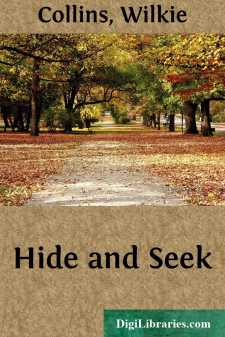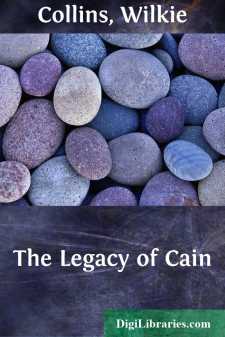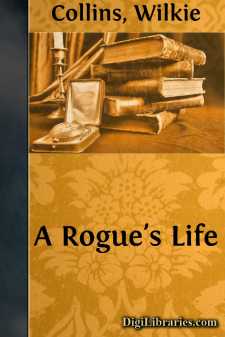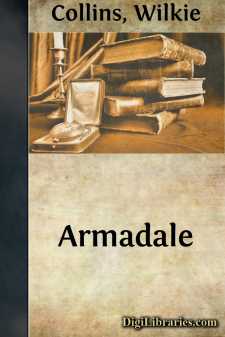Categories
- Antiques & Collectibles 13
- Architecture 36
- Art 48
- Bibles 22
- Biography & Autobiography 813
- Body, Mind & Spirit 142
- Business & Economics 28
- Children's Books 17
- Children's Fiction 14
- Computers 4
- Cooking 94
- Crafts & Hobbies 4
- Drama 346
- Education 46
- Family & Relationships 57
- Fiction 11829
- Games 19
- Gardening 17
- Health & Fitness 34
- History 1377
- House & Home 1
- Humor 147
- Juvenile Fiction 1873
- Juvenile Nonfiction 202
- Language Arts & Disciplines 88
- Law 16
- Literary Collections 686
- Literary Criticism 179
- Mathematics 13
- Medical 41
- Music 40
- Nature 179
- Non-Classifiable 1768
- Performing Arts 7
- Periodicals 1453
- Philosophy 64
- Photography 2
- Poetry 896
- Political Science 203
- Psychology 42
- Reference 154
- Religion 513
- Science 126
- Self-Help 84
- Social Science 81
- Sports & Recreation 34
- Study Aids 3
- Technology & Engineering 59
- Transportation 23
- Travel 463
- True Crime 29
No Name
by: Wilkie Collins
Categories:
Description:
Excerpt
CHAPTER I.
THE hands on the hall-clock pointed to half-past six in the morning. The house was a country residence in West Somersetshire, called Combe-Raven. The day was the fourth of March, and the year was eighteen hundred and forty-six.
No sounds but the steady ticking of the clock, and the lumpish snoring of a large dog stretched on a mat outside the dining-room door, disturbed the mysterious morning stillness of hall and staircase. Who were the sleepers hidden in the upper regions? Let the house reveal its own secrets; and, one by one, as they descend the stairs from their beds, let the sleepers disclose themselves.
As the clock pointed to a quarter to seven, the dog woke and shook himself. After waiting in vain for the footman, who was accustomed to let him out, the animal wandered restlessly from one closed door to another on the ground-floor; and, returning to his mat in great perplexity, appealed to the sleeping family with a long and melancholy howl.
Before the last notes of the dog's remonstrance had died away, the oaken stairs in the higher regions of the house creaked under slowly-descending footsteps. In a minute more the first of the female servants made her appearance, with a dingy woolen shawl over her shoulders—for the March morning was bleak; and rheumatism and the cook were old acquaintances.
Receiving the dog's first cordial advances with the worst possible grace, the cook slowly opened the hall door and let the animal out. It was a wild morning. Over a spacious lawn, and behind a black plantation of firs, the rising sun rent its way upward through piles of ragged gray cloud; heavy drops of rain fell few and far between; the March wind shuddered round the corners of the house, and the wet trees swayed wearily.
Seven o'clock struck; and the signs of domestic life began to show themselves in more rapid succession.
The housemaid came down—tall and slim, with the state of the spring temperature written redly on her nose. The lady's-maid followed—young, smart, plump, and sleepy. The kitchen-maid came next—afflicted with the face-ache, and making no secret of her sufferings. Last of all, the footman appeared, yawning disconsolately; the living picture of a man who felt that he had been defrauded of his fair night's rest.
The conversation of the servants, when they assembled before the slowly lighting kitchen fire, referred to a recent family event, and turned at starting on this question: Had Thomas, the footman, seen anything of the concert at Clifton, at which his master and the two young ladies had been present on the previous night? Yes; Thomas had heard the concert; he had been paid for to go in at the back; it was a loud concert; it was a hot concert; it was described at the top of the bills as Grand; whether it was worth traveling sixteen miles to hear by railway, with the additional hardship of going back nineteen miles by road, at half-past one in the morning—was a question which he would leave his master and the young ladies to decide; his own opinion, in the meantime, being unhesitatingly, No....












